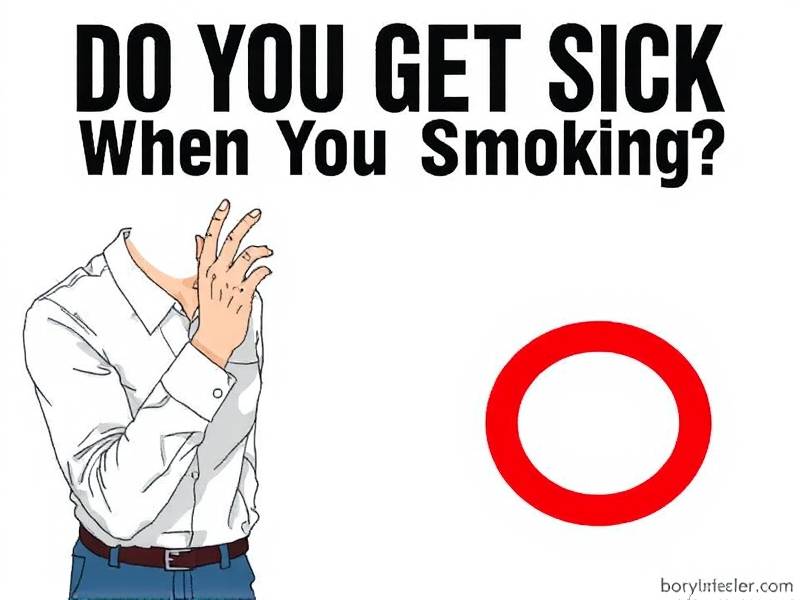Do You Get Sick When You Quit Smoking?
Navigating the Health Challenges of Quitting Smoking
Introduction: Quitting smoking is a significant decision that can lead to numerous health benefits. However, it's no secret that the process can be challenging. One common concern among smokers is whether they will get sick when they quit. This article delves into the potential health challenges you may face during your journey to becoming smoke-free and provides insights on how to navigate them.
Understanding Withdrawal Symptoms

When you quit smoking, your body undergoes a series of changes as it adjusts to life without nicotine. One of the most immediate effects is the onset of withdrawal symptoms. These symptoms can include:
- Physical Symptoms: Headaches, fatigue, irritability, and increased appetite are common physical symptoms experienced during withdrawal.
- Mental Symptoms: Anxiety, depression, and difficulty concentrating are some mental symptoms that may arise.
It's important to note that these symptoms are temporary and usually subside within a few weeks. Understanding them can help you better manage your expectations and stay motivated.
The Risk of Relapse
One of the most significant health risks when quitting smoking is the potential for relapse. According to the Centers for Disease Control and Prevention (CDC), most smokers try to quit multiple times before succeeding. The key to overcoming this challenge lies in identifying triggers and developing strategies to cope with them.

Common Triggers Include:
- Stress: Nicotine acts as a stimulant, so when you quit, stress can become more pronounced.
- Social Situations: Social gatherings or events where smoking is present can be challenging.
- Emotional States: Certain emotions like sadness or boredom may trigger cravings.
To avoid relapse, consider adopting healthy coping mechanisms such as exercise, mindfulness practices, or seeking support from friends, family, or support groups.
The Health Benefits of Quitting Smoking
Despite the challenges you may face when quitting smoking, it's crucial to remember the long-term health benefits:
- Reduced Risk of Heart Disease: Within two years of quitting smoking, your risk of heart disease drops significantly compared to that of current smokers.
- Improved Lung Function: Your lung function improves within a few weeks after quitting.
- Lower Risk of Cancer: Over time, quitting smoking can reduce your risk of various types of cancer.
Seeking Professional Help
If you're struggling with quitting smoking or experiencing severe withdrawal symptoms, it's essential to seek professional help. A healthcare provider can offer guidance on medications or therapies that may aid in your journey towards becoming smoke-free.
Conclusion:
Quitting smoking comes with its share of challenges; however, understanding withdrawal symptoms and triggers can help you navigate this journey more effectively. By focusing on the long-term health benefits and seeking support when needed, you'll be well on your way to a smoke-free life. Remember that each step towards becoming smoke-free is progress worth celebrating!
